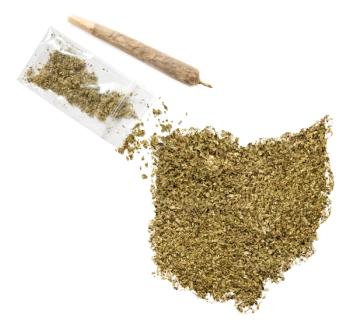
Opioid Settlement May Spur Cannabis as Potential New Pharmacy Revenue Stream
In a recent article, our sister publication, Pharmacy Times, reports on how the opioid settlement framework could have a significant impact on the future of cannabis distribution and its role in health care.
The opioid crisis has profoundly impacted communities across the United States, prompting a $50 billion opioid settlement framework approved by a consortium of attorney generals and the US Justice Department.1 This landmark settlement holds pharmaceutical and health insurance companies accountable for their involvement in the opioid epidemic.
Image credit: goodmanphoto | stock.adobe.com
However, the framework may also have broader implications, potentially shaping the distribution of cannabis in big-box pharmacies and its integration into mainstream health plans. This article explores the potential impact of the opioid settlement framework on the future of cannabis distribution and its role in health care.
Cannabis and Opioid Crisis Correlation
New and existing research has suggested a potential correlation between the availability of medical cannabis and a reduction in opioid-related deaths and overdoses.2 As the opioid crisis continues, some states have legalized medical cannabis as an alternative pain relief option and a possible means to address opioid abuse. The opioid settlement framework acknowledges this connection, providing an opportunity to consider cannabis as a potential pain management tool in mainstream health care.
Regulatory Changes and Legalization
The opioid settlement framework is still being adjudicated and is broken down into 3 categories: (1) substantial multi-billion dollar reparations, (2) rehabilitation coverage, and (3) devising alternative diversion plans. This paves the way for additional regulatory changes concerning cannabis.
As public opinion and popularity lean toward cannabis legalization, 68% of US adults favor legalizing marijuana.3 This settlement could encourage more states to legalize medical and/or recreational cannabis. Establishing a legal precedent may facilitate legislative advocacy for cannabis as a safer alternative to opioids for pain management.
For example, the Compassionate Care Act and similar legislation found in various states enable the legal use of cannabis for medical purposes. These laws aim to offer legal safeguards and accessibility to cannabis for individuals suffering from specific medical conditions that its therapeutic qualities can alleviate. Importantly, these legal measures typically ensure that employees who are part of state-sanctioned cannabis programs are shielded from termination due to their participation, and this aspect of the legislation is unlikely to change.
Cannabis in Big Box Pharmacies
The opioid settlement framework's financial repercussions are prompting pharmaceutical companies to explore diversification of their product lines, focusing on entering the medical cannabis market and potentially emerging as prominent suppliers. This transition is underway, particularly evident in major pharmacy chains, which have recorded nearly $1 billion in retail sales from CBD products.
When federal legalization eventually occurs, these companies may consider adding medical cannabis items to their inventories to generate new revenue streams.4 This shift could substantially impact the distribution of cannabis, potentially enhancing accessibility to the general public. However, consumers may face a significant challenge in the form of high taxation rates, which reaches up to 37% in certain states, placing a financial burden on cannabis consumers.
Mainstream Health Plans to the Rescue
The opioid settlement framework has ignited conversations about including cannabis in conventional health care plans. With increasing evidence endorsing the therapeutic advantages of medical cannabis, health insurance companies are beginning to incorporate coverage for cannabis-based treatments targeting specific conditions for which efficacy is well-established. This integration can potentially lower patients' expenses, making medical cannabis a recognized and viable option for medical treatment.
Research and Development
The allocation of funds in the opioid settlement to combat addiction and support treatment centers may indirectly benefit cannabis research.5 With increased financial resources available, scientists and researchers may conduct more comprehensive studies on the medical applications, safety, and efficacy of cannabis. This research could form a more robust basis for integrating cannabis into mainstream health care plans to reduce out-of-pocket expenses for the consumer.
Public Perceptions and Education
A major challenge in integrating cannabis into mainstream health care is overcoming public skepticism and misinformation. In light of the opioid settlement framework, pharmaceutical companies may initiate public education campaigns to inform the population about the medical benefits and risks of cannabis. Such proactive efforts could foster a more informed and accepting environment for cannabis inclusion in mainstream health plans and big pharma.
Conclusion
The $50 billion opioid settlement framework marks a substantial stride in confronting the opioid crisis within the United States. Beyond its immediate implications, this settlement can potentially influence how cannabis is distributed within pharmacy chains and how it finds its place in conventional health care plans.6
As awareness of the therapeutic value of medical cannabis grows among the public and policymakers, it becomes imperative to base decisions on robust evidence to guarantee its safe and efficient integration into mainstream health care.
About the Author
Frank Labrozzi,
References
1. U.S Justice Department: Global Resolution of Criminal and Civil Investigations with Opioid Manufacturer. US Department of Justice. News Release. October 21, 2020.
2. Balu A, Mishra D, Marcu J, Balu G. Medical Cannabis Certification Is Associated With Decreased Opiate Use in Patients With Chronic Pain: A Retrospective Cohort Study in Delaware. Cureus. 2021 Dec 7;13(12):e20240. doi: 10.7759/cureus.20240. PMID: 35004055; PMCID: PMC8730800.
3. Jones J. Marijuana Views Linked to Ideology, Religiosity, Age. Gallup. November 15, 2022.
4. Wiley JL, Gourdet CK, Thomas BF. Cannabidiol: Science, Marketing, and Legal Perspectives [Internet]. Research Triangle Park (NC): RTI Press; 2020 Apr. Available from:
5. Dentons: Cannabis Client Alert Week of July 7th 2023: Federal Government Considers Additional Cannabis Reforms for Veterans. News release. Dentons. July 7, 2023.
6. Shulman H, Sewpersaud V, Thirlwell C. Evolving Global Perspectives of Pharmacists: Dispensing Medical Cannabis. Cannabis Cannabinoid Res. 2022 Apr;7(2):126-134. doi: 10.1089/can.2020.0144. Epub 2021 Apr 16. PMID: 33998897; PMCID: PMC9070745.
To read the full article, visit Pharmacy Times:
Newsletter
Unlock the latest breakthroughs in cannabis science—subscribe now to get expert insights, research, and industry updates delivered to your inbox.





